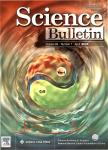SHRIMP dating of the Bangong Lake SSZ-type ophiolite: Constraints on the closure time of ocean in the Bangong Lake-Nujiang River,northwestern Tibet
SHRIMP dating of the Bangong Lake SSZ-type ophiolite: Constraints on the closure time of ocean in the Bangong Lake-Nujiang River, northwestern Tibet作者机构:School of Earth and Space Sciences University of Science and Technology of China Hefei 230026 China Institute of Geology Chinese Academy of Geological Sciences Beijing 100037 China
出 版 物:《Chinese Science Bulletin》 (CHINESE SCIENCE BULLETIN)
年 卷 期:2007年第52卷第7期
页 面:936-941页
核心收录:
学科分类:0709[理学-地质学] 070901[理学-矿物学、岩石学、矿床学] 07[理学]
基 金:Supported by the Ministry of Land and Resources (Grant No. 20010101) the National Natural Science Foundation of China (Grant No. 40572036 and 40610104005)
主 题:西藏 班公湖怒江缝合带 古海洋闭合时期 SSZ型蛇绿岩 SHRIMP 测年
摘 要:The Bangong Lake ophiolite is located in the westernmost part of the Bangong Lake-Nujiang River suture zone. It is a tectonic mélange consisting of numerous individual blocks of peridotite, pillowed and massive lavas and mafic dykes with SSZ-type ophiolitic geochemical affinity formed at the end of a Wilson circle. The SHRIMP U-Pb ages of the co-magmatic zircon domains from one gabbroic dyke (Sample 01Y-155) range from 162.5±8.6 Ma to 177.1±1.4 Ma with an average of 167.0±1.4 Ma (n = 12, MSWD = 1.2), suggesting that the subduction of the Bangong Lake Neo-Tethyan Ocean started before the Middle Jurassic. It is inferred that the tectonic transform from spreading to subduction of the Neo-Tethyan Ocean began before the Middle Jurassic in the Bangong Lake area.



